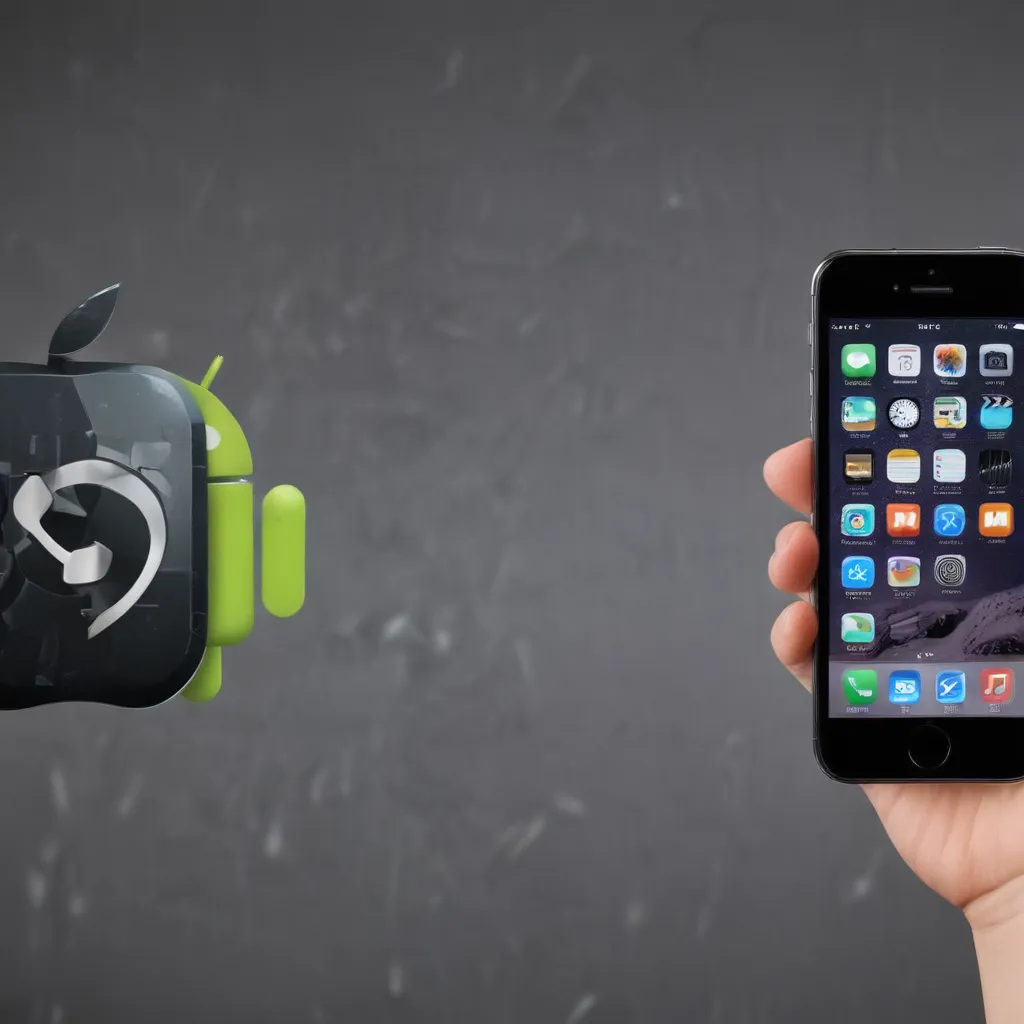
The Smartphone Dilemma: Android or iPhone?
As a business owner or professional, the choice between an Android or iPhone smartphone can have a significant impact on your productivity, efficiency, and overall business operations. Both platforms offer unique features and capabilities, and the decision ultimately comes down to your specific needs and preferences. In this comprehensive article, I will delve into the nuanced differences between Android and iPhone, exploring their strengths, weaknesses, and suitability for business use.
Understanding the Android Ecosystem
The Android platform boasts a vast and diverse ecosystem, with a wide range of hardware options from various manufacturers. This diversity can be both a blessing and a challenge for business users. I will examine the pros and cons of the Android ecosystem, including the flexibility it offers in terms of device selection, customization, and integration with other business tools.
Android’s Flexibility and Customization
One of the primary advantages of the Android platform is its inherent flexibility. I will discuss how business users can tailor their Android devices to their specific needs, from customizing the user interface to integrating a wide range of productivity apps and tools. This level of customization can be particularly beneficial for those who require a more personalized and efficient workflow.
Android’s Fragmentation and Security Concerns
However, the diversity of the Android ecosystem also presents some challenges. I will explore the issue of fragmentation, where multiple versions of the Android operating system coexist, and how this can impact software compatibility, security updates, and overall device management for businesses. I will also delve into the security considerations that business users should be aware of when using Android devices.
Exploring the iPhone’s Ecosystem
In contrast, the iPhone ecosystem offers a more streamlined and tightly integrated approach. I will examine the advantages of the iPhone’s consistent hardware and software experience, as well as its reputation for security and reliability, which can be particularly appealing for business users.
iPhone’s Seamless Integration and Ecosystem Advantages
I will highlight how the integration between iPhone hardware and Apple’s iOS operating system can provide a cohesive and efficient user experience, particularly for those who are already embedded in the Apple ecosystem. I will also discuss the benefits of the iPhone’s consistent software updates and the ecosystem’s robust security features.
iPhone’s Limitations and Considerations for Business
While the iPhone’s ecosystem offers many advantages, I will also address the potential limitations and considerations for business users. This may include the more restricted customization options, the higher cost of entry, and the implications of locking into the Apple ecosystem.
Comparing Key Features for Business Use
To help you make an informed decision, I will provide a detailed comparison of the key features that are most relevant for business use, such as productivity tools, enterprise management, security, and overall cost of ownership.
Productivity and Collaboration Tools
I will examine the availability and effectiveness of productivity and collaboration tools on both the Android and iPhone platforms. This will include a look at the integration with popular business software, the capabilities of native productivity apps, and the overall user experience for tasks like email, document editing, and team collaboration.
Enterprise Management and Security
Addressing the critical needs of businesses, I will compare the enterprise management and security features offered by Android and iPhone. This will cover aspects like device management, data encryption, access controls, and compliance with industry regulations.
Cost of Ownership and Total Cost of Use
The financial implications of choosing a smartphone platform can be a significant factor for businesses. I will delve into the comparative costs associated with hardware, software, and ongoing maintenance, providing a comprehensive analysis to help you make a well-informed decision.
Real-World Case Studies and Expert Insights
To further illustrate the practical implications of the Android vs. iPhone debate, I will present real-world case studies and insights from industry experts. These examples will showcase how businesses have navigated the choice between the two platforms and the resulting impact on their operations.
Small Business Perspective
I will share the experiences of a small business owner who has weighed the pros and cons of Android and iPhone in their daily operations. This case study will provide valuable firsthand insights into the decision-making process and the specific challenges faced by smaller enterprises.
Enterprise-Level Experiences
Delving into the larger business landscape, I will also explore the perspectives of IT decision-makers at enterprise-level organizations. These case studies will highlight the strategic considerations, deployment challenges, and overall outcomes of their smartphone platform choices.
Expert Opinions and Recommendations
To complement the real-world case studies, I will seek out the insights of industry experts, such as IT professionals, security analysts, and technology consultants. Their valuable perspectives will help you navigate the nuances of the Android vs. iPhone debate and make an informed decision that aligns with your business needs.
Conclusion: Choosing the Right Smartphone Platform
In the concluding section of this article, I will summarize the key findings and provide a balanced assessment of the Android and iPhone platforms for business use. I will highlight the unique strengths and weaknesses of each ecosystem, helping you weigh the factors that are most important to your business.
Ultimately, the choice between an Android or iPhone smartphone for business use will depend on your specific requirements, budget, and the overall alignment with your organizational goals. By thoroughly exploring the various aspects of these two platforms, I aim to empower you to make a well-informed decision that will optimize your business operations and enhance your productivity.












